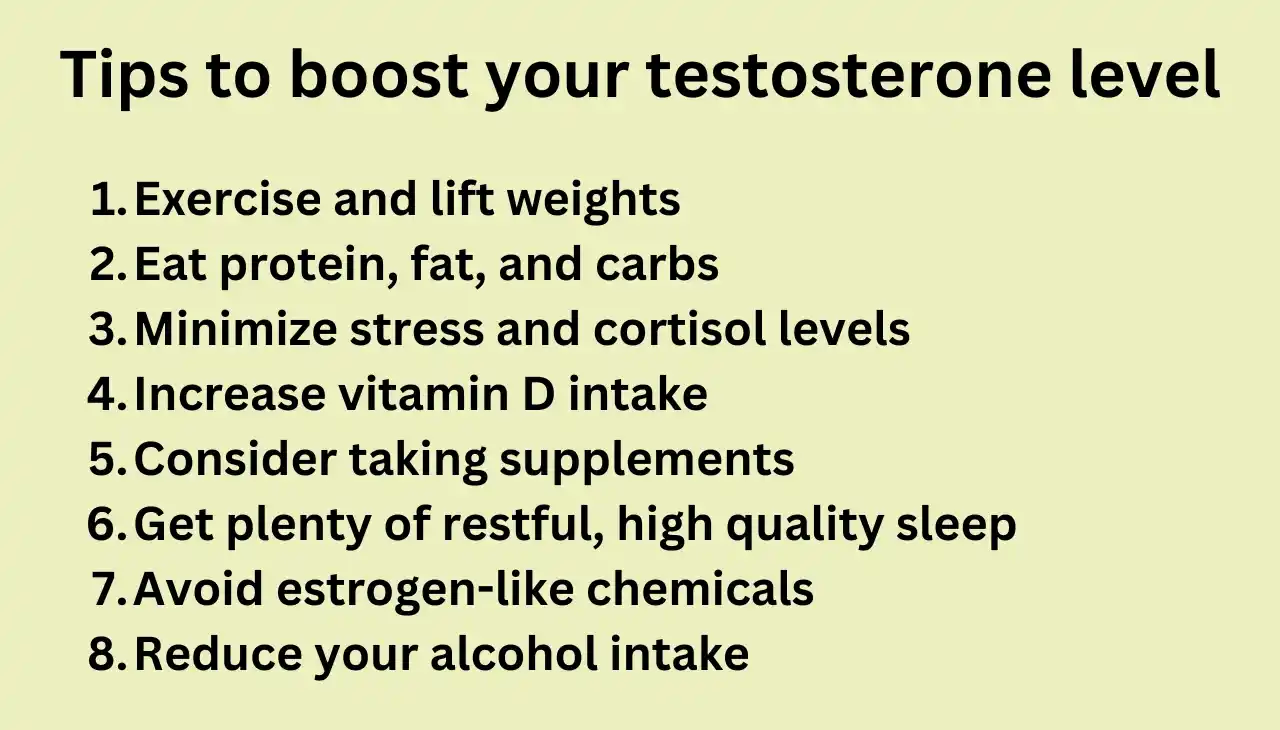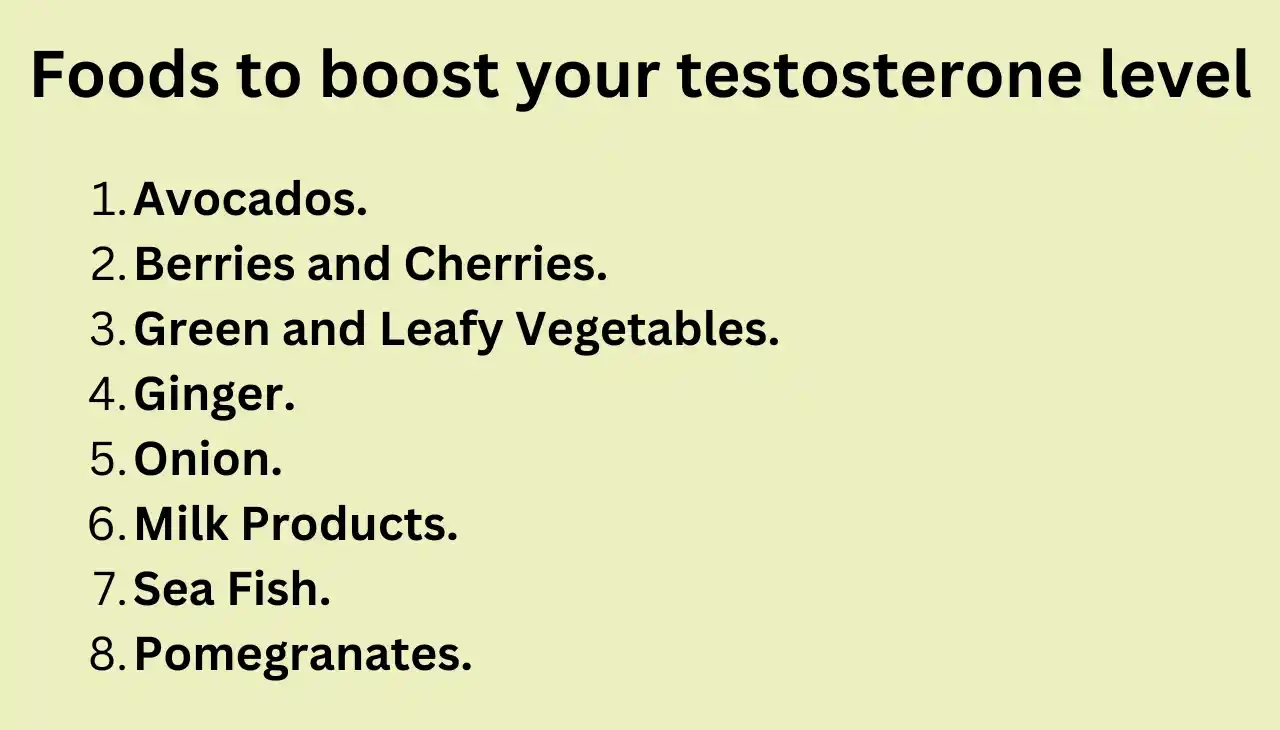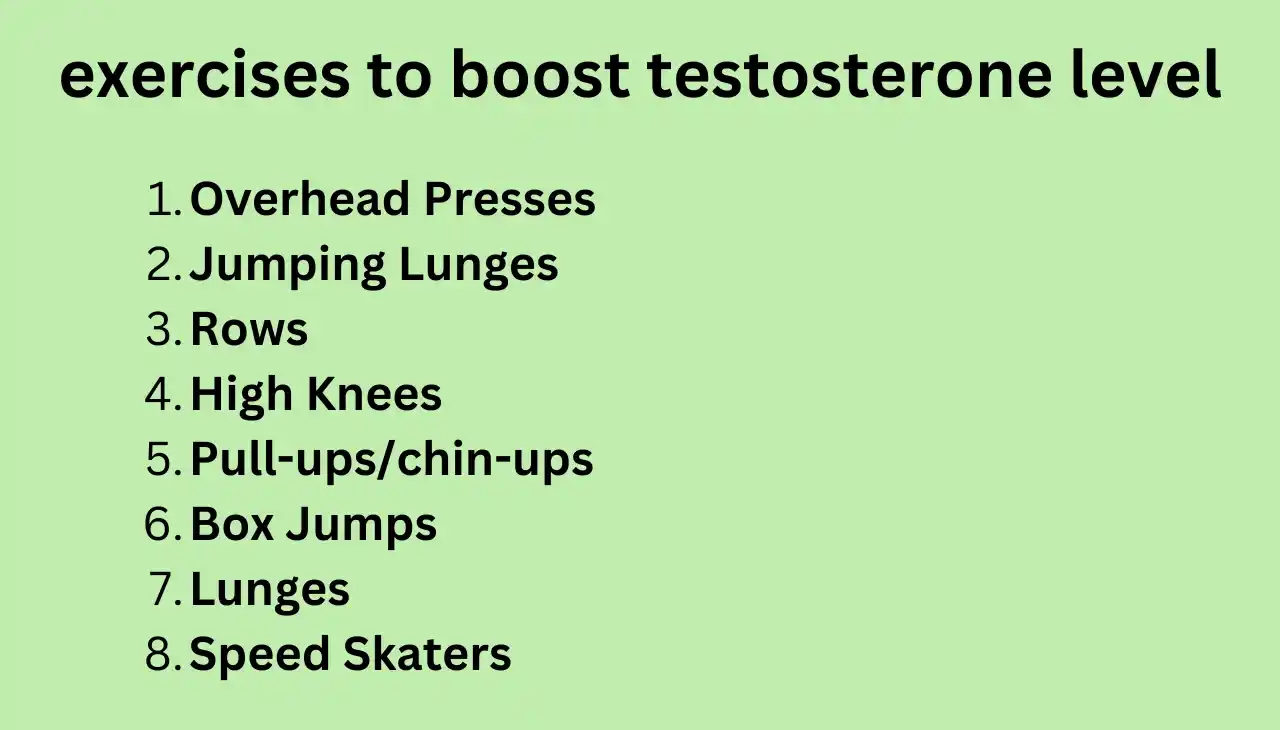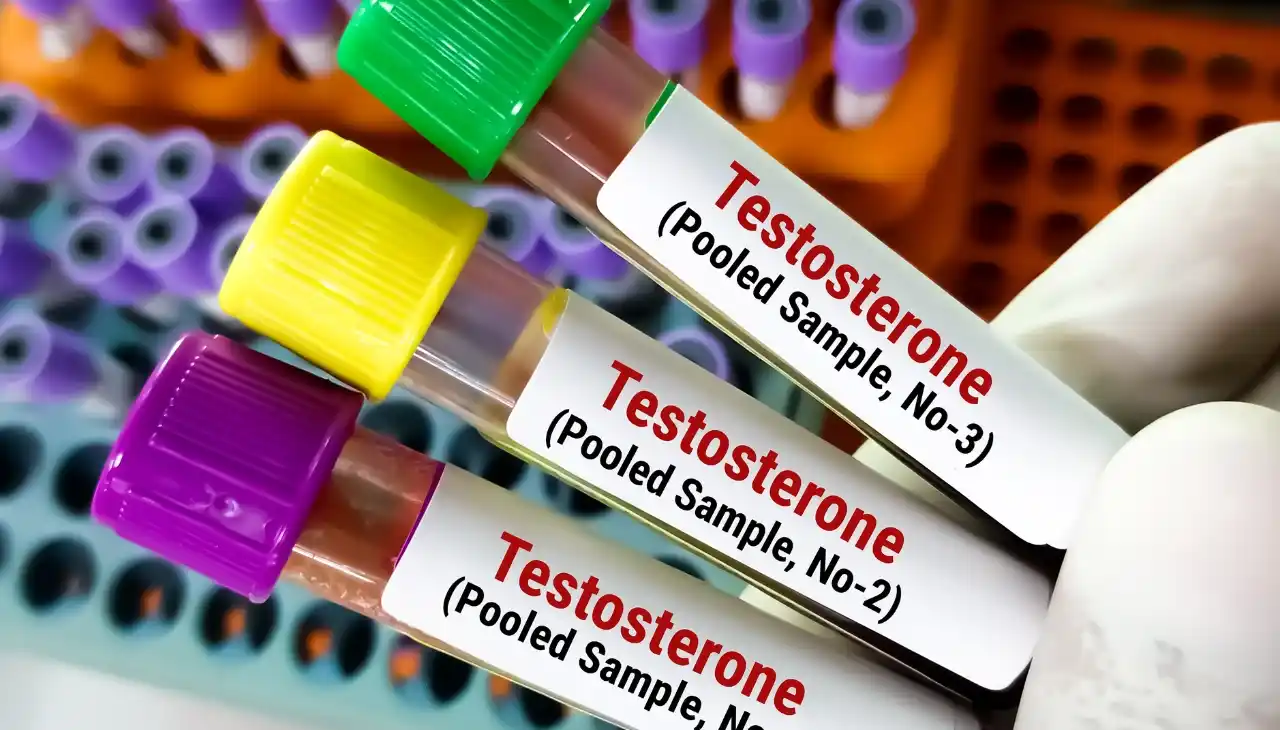Introduction
Are you feeling a bit off lately? Low energy, struggling to build muscle, or experiencing a dip in your libido? These could be signs that your testosterone levels aren’t quite where they should be. But don’t worry, you’re not alone in this boat, and there are plenty of natural ways to give your T-levels a boost. In this article, we’ll dive into 10 proven methods to naturally boost your testosterone, helping you feel more like your vibrant, energetic self.

Boost your testosterone naturally
Boosting testosterone naturally can be achieved through a combination of diet, exercise, and lifestyle changes. Here are some effective strategies:
Dietary Changes
- Zinc and Selenium-Rich Foods: Shellfish, such as oysters, are excellent sources of zinc and selenium, which are crucial for testosterone production.
- Fatty Fish: Salmon, tuna, and mackerel are high in omega-3 fatty acids and vitamin D, both of which support testosterone levels.
- Dark, Leafy Greens: Spinach, kale, and collard greens are rich in magnesium, which can positively influence testosterone levels.
- Cocoa Products: Cocoa is high in flavonoids, which can boost testosterone production.
- Avocados: These are rich in healthy fats and boron, which can help increase testosterone.
- Eggs: Particularly the yolks, are a good source of protein and selenium.
- Antioxidant Fruits: Berries, cherries, and pomegranates are packed with antioxidants that can support overall hormonal health.
Lifestyle Changes
- Exercise Regularly: Engage in resistance training, such as weightlifting, and high-intensity interval training (HIIT). These types of exercises are particularly effective at boosting testosterone.
- Get Adequate Sleep: Make it a goal to get 7-9 hours of refreshing sleep each night. Poor sleep can significantly lower testosterone levels.
- Manage Stress: High levels of stress can increase cortisol, which negatively impacts testosterone. Practices like meditation, hot yoga, yoga, and deep breathing can help manage stress.
- Maintain a Healthy Weight: Excess body fat can convert testosterone into estrogen, so maintaining a healthy weight is crucial.
Supplements
- Vitamin D: If you don’t get enough sunlight, consider taking a vitamin D supplement.
- Zinc and Magnesium: These minerals are essential for testosterone production and can be taken as supplements if dietary intake is insufficient.
Testosterone boosting fruits
Here are some fruits that can help boost testosterone levels naturally:
- Pomegranates: Pomegranates are rich in antioxidants and have been shown to increase testosterone levels and improve mood.
- Berries: Berries such as blackberries, blueberries, raspberries, and strawberries are high in flavonoid antioxidants, which can help protect testosterone-producing cells from damage.
- Cherries: Cherries are another great source of antioxidants and can help reduce inflammation, which supports overall hormonal health.
- Grapes: Grapes, especially red grapes, contain resveratrol, which can help increase testosterone levels.
- Bananas: Bananas contain the enzyme bromelain, which is believed to help boost testosterone levels. They are also rich in B vitamins, A vitamins, potassium, and fiber.
- Avocados: Avocados are high in healthy fats, vitamin B6, and folic acid, all of which are important for maintaining healthy testosterone levels.
- Pineapples: Pineapples are rich in bromelain, an enzyme that may help increase testosterone levels.
- Raisins: Raisins are high in boron, a mineral that has been linked to increased testosterone levels.
Including these fruits in your diet can be a delicious and natural way to support your testosterone levels.

Increase your testosterone as a teenager
Increasing testosterone levels as a teenager can be achieved through healthy lifestyle choices. Here are some effective strategies:
- Exercise Regularly
- High-Intensity Workouts: Engage in brief, high-intensity interval training (HIIT) or resistance training. These types of exercises are particularly effective at boosting testosterone.
- Weightlifting: Focus on compound movements like lunge, squats, deadlifts, pushups, and bench presses.
- Get Adequate Sleep
- Sleep Duration: Aim for at least 8-9 hours of sleep per night. Quality sleep is essential for hormone synthesis, particularly testosterone.
- Manage Stress
- Stress Reduction Techniques: Practice mindfulness, meditation, or yoga to reduce stress levels. High stress levels can elevate cortisol, which has a detrimental influence on testosterone.
- Maintain a Balanced Diet
- Healthy Fats: Include sources of healthy fats like avocados, egg yolks, nuts, seeds, and olive oil in your diet. Your body needs healthy fats to produce vital hormones.
- Protein and Carbs: Ensure you have a balanced intake of protein and carbohydrates to support overall health and hormone levels.
- Avoid Endocrine Disruptors
- Limit Exposure: Reduce exposure to chemicals that can interfere with hormone production, such as those found in plastics and certain personal care products.
- Stay Active and Healthy
- Regular Physical Activity: Besides structured workouts, stay active throughout the day with activities like walking, cycling, or playing sports.
- Maintain a Healthy Weight
- Healthy Weight Management: Excess body fat can negatively affect hormone levels, so maintaining a healthy weight is important.
- Consider Natural Supplements
- Vitamin D and Zinc: If your diet lacks these nutrients, consider supplements after consulting with a healthcare provider.
Foods that increase testosterone the most
Here are some of the top foods known to boost testosterone levels:
- Pomegranates: Pomegranates are rich in antioxidants and have been shown to increase testosterone levels and improve mood.
- Fatty Fish: Fish like salmon, tuna, and mackerel are high in omega-3 fatty acids and vitamin D, both of which support testosterone production.
- Shellfish: Oysters and other shellfish are excellent sources of zinc, a mineral essential for testosterone production.
- Leafy Greens: Spinach, kale, and collard greens are rich in magnesium, which can positively influence testosterone levels.
- Eggs: Egg yolks are a good source of vitamin D and healthy fats, both of which are important for maintaining healthy testosterone levels.
- Ginger: Ginger has been demonstrated to boost testosterone levels and promote sperm health.
- Red Meat: Red meat, especially beef, is rich in zinc and vitamin D, which are crucial for testosterone production.
- Avocados: Avocados are high in healthy fats, vitamin B6, and folic acid, all of which are important for maintaining healthy testosterone levels.
- Cocoa Products: Cocoa is high in flavonoids, which can boost testosterone production.
- Grapes: Grapes, especially red grapes, contain resveratrol, which can help increase testosterone levels.
Including these foods in your diet can help support healthy testosterone levels naturally.

Supplements to increase testosterone
Here are some supplements that are known to help boost testosterone levels:
- Vitamin D: Vitamin D is crucial for testosterone production. If you don’t get enough sunlight, a vitamin D supplement can be beneficial.
- Zinc: Zinc is essential for testosterone production and can be taken as a supplement if dietary intake is insufficient.
- Ashwagandha: Ashwagandha is an adaptogenic herb that has been shown to increase testosterone levels and improve overall health.
- Fenugreek: Fenugreek is a plant that has been demonstrated to boost testosterone and improve libido.
- DHEA (Dehydroepiandrosterone): DHEA is a hormone that your body converts into testosterone. Supplementing with DHEA can help boost testosterone levels.
- Magnesium: Magnesium is important for many bodily functions, including testosterone production. A magnesium supplement can help if your dietary intake is low.
- Ginger: Ginger has been demonstrated to boost testosterone levels and promote sperm health.
- Boron: Boron is a trace mineral that can help increase testosterone levels and reduce inflammation.
- Tribulus Terrestris: This herbal supplement is often used to enhance testosterone levels and improve sexual function.
- Tongkat Ali: Tongkat Ali is a traditional herbal remedy that has been shown to increase testosterone levels and improve stress resilience.
Including these supplements in your routine can help support healthy testosterone levels. However, it’s always a good idea to consult with a healthcare provider before starting any new supplement regimen to ensure it’s safe and appropriate for your individual needs.
Increase your testosterone by food
Increasing testosterone levels through diet involves incorporating foods that are rich in key nutrients like zinc, magnesium, vitamin D, and healthy fats. Here are some foods that can help boost testosterone naturally:
- Fatty Fish: Fatty fish such as salmon, tuna, and mackerel are high in omega-3 fatty acids and vitamin D, both of which support testosterone production.
- Shellfish: Oysters and other shellfish are excellent sources of zinc, a mineral essential for testosterone production.
- Leafy Greens: Spinach, kale, and collard greens are rich in magnesium, which can positively influence testosterone levels.
- Eggs: Egg yolks are a good source of vitamin D and healthy fats, both of which are important for maintaining healthy testosterone levels.
- Pomegranates: Pomegranates are rich in antioxidants and have been shown to increase testosterone levels and improve mood.
- Ginger: Ginger has been demonstrated to boost testosterone levels and promote sperm health.
- Red Meat: Red meat, especially beef, is rich in zinc and vitamin D, which are crucial for testosterone production.
- Avocados: Avocados are high in healthy fats, vitamin B6, and folic acid, all of which are important for maintaining healthy testosterone levels.
- Cocoa Products: Cocoa is high in flavonoids, which can boost testosterone production.
- Grapes: Grapes, especially red grapes, contain resveratrol, which can help increase testosterone levels.
Including these foods in your diet can help support healthy testosterone levels naturally.
Foods that increase testosterone by 52 percent
Certain foods have been shown to significantly boost testosterone levels.
- Tuna: Tuna is high in vitamin D and protein, both of which are essential for testosterone production.
- Oysters: Oysters are rich in zinc, essential amino acids, a mineral crucial for testosterone production.
- Shellfish: Other shellfish, like crab and lobster, are also excellent sources of zinc.
- Beef: Beef, especially the liver, is rich in vitamin D and zinc, which can help increase testosterone levels.
- Beans: Beans, including black beans, white beans, and kidney beans, are good sources of vitamin D and zinc.
- Pomegranates: Pomegranates are rich in antioxidants and have been shown to increase testosterone levels and improve mood.
- Spinach: Spinach is high in magnesium, which can positively influence testosterone levels.
- Garlic: Garlic contains allicin, which can help reduce cortisol levels, thereby allowing testosterone to be more effective.
- Eggs: Egg yolks are a good source of vitamin D and healthy fats, both of which are important for maintaining healthy testosterone levels.
- Cruciferous Vegetables: Vegetables like broccoli, cabbage, and cauliflower can help balance hormone levels by reducing estrogen, which in turn can help increase testosterone.
Including these foods in your diet can help support healthy testosterone levels naturally.

Increase your testosterone to 1,000
Increasing testosterone levels to 1,000 ng/dL naturally involves a combination of lifestyle changes, diet, and possibly supplements. Here are some effective strategies:
- Exercise Regularly
- Weightlifting: Engage in resistance training, focusing on compound movements like squats, deadlifts, and bench presses.
- High-Intensity Interval Training (HIIT): Short bursts of intense exercise followed by rest periods can significantly boost testosterone levels.
- Optimize Your Diet
- Healthy Fats: Include sources of healthy fats like avocados, egg yolks, nuts, seeds, and olive oil in your diet. Your body needs healthy fats to produce vital hormones.
- Protein and Carbs: Ensure a balanced intake of protein and carbohydrates to support overall health and hormone levels.
- Zinc and Magnesium: Foods rich in these minerals, such as shellfish, leafy greens, and beans, can help boost testosterone.
- Get Adequate Sleep
- Sleep Duration: Aim for at least 8-9 hours of sleep per night. Poor sleep can significantly lower testosterone levels.
- Manage Stress
- Stress Reduction Techniques: Practice mindfulness, meditation, or yoga to reduce stress levels. High stress levels can elevate cortisol, which has a detrimental influence on testosterone.
- Sun Exposure
- Vitamin D: Spend time in the sun to boost your vitamin D levels, which is crucial for testosterone production. If sunlight exposure is limited, consider a vitamin D supplement.
- Consider Natural Supplements
- Ashwagandha: This adaptogenic herb has been shown to increase testosterone levels and reduce stress.
- Fenugreek: Fenugreek supplements can help increase testosterone levels and improve libido.
- DHEA (Dehydroepiandrosterone): This hormone can be converted into testosterone in the body.
- Avoid Endocrine Disruptors
- Limit Exposure: Reduce exposure to chemicals that can interfere with hormone production, such as those found in plastics and certain personal care products.
- Maintain a Healthy Weight
- Healthy Weight Management: Excess body fat can negatively affect hormone levels, so maintaining a healthy weight is important.
Implementing these strategies can help you achieve and maintain optimal testosterone levels.
High testosterone is good or bad
High testosterone levels can have both positive and negative effects, depending on how high the levels are and the individual’s overall health.
Potential Benefits of High Testosterone
- Increased Muscle Mass: Higher testosterone levels can lead to increased muscle mass and strength.
- Improved Libido: Testosterone is crucial for sexual health and can enhance libido and sexual performance.
- Better Mood: Adequate testosterone levels are associated with improved mood and reduced risk of depression.
- Bone Health: Testosterone helps maintain bone density, reducing the risk of osteoporosis.
Potential Risks of Excessively High Testosterone
- Aggression and Mood Swings: Extremely high levels of testosterone can lead to increased aggression and mood swings.
- Heart Health Issues: Very high testosterone levels may increase the risk of heart problems.
- Sleep Apnea: High testosterone can contribute to sleep apnea, a condition where breathing repeatedly stops and starts during sleep.
- Skin Problems: Excessive testosterone can lead to acne and oily skin.
- Prostate Health: There is some evidence that very high testosterone levels might increase the risk of prostate issues.
Balancing Testosterone Levels
Maintaining balanced testosterone levels is key to reaping the benefits while minimizing the risks. This can be achieved through a healthy lifestyle, including regular exercise, a balanced diet, adequate sleep, and stress management.
If you have concerns about your testosterone levels, it’s always a good idea to consult with a healthcare provider who can offer personalized advice and conduct any necessary tests.

Tips to boost your testosterone
- Optimizing Your Diet for Testosterone Production
- Protein: Essential for building testosterone, ideally lean meats, eggs, and legumes.
- Fatty Fish: Omega-3 Powerhouse, excellent sources include salmon, trout, and sardines. High-quality omega-3 supplements can be beneficial.
- Magnesium: Helps make more testosterone bioavailable, recommended sources include spinach, almonds, and avocados.
- Zinc: The Testosterone Catalyst, ignites testosterone production, recommended sources include oysters, beef, and pumpkin seeds.
- Balanced Diet: Protects against insulin resistance and weight gain, crucial for maintaining testosterone levels. A Mediterranean diet with vegetables, fruits, whole grains, and healthy fats is recommended.
- Testosterone Boosting through Exercise
- Compound Movements: These exercises engage multiple muscle groups simultaneously, boosting testosterone production. Examples include lunge, sprints, burpees, pushups.
- High-Intensity Interval Training (HIIT): This type of training involves short bursts of intense activity followed by rest periods, boosting testosterone levels. Examples include lunge, sprints, burpees, pushups and mountain climbers.
- Rest and Recovery: This is crucial for hormone health, as overtraining can deteriorate the good stuff. Adequate rest and recovery between workouts are essential for muscle repair and hormone production.
- Optimizing Sleep for Maximum Testosterone Levels
- Prioritize Quality Sleep: Aim for 7-9 hours of quality sleep each night, as it’s during these deep sleep cycles that the body performs most of its testosterone production.
- Create a Sleep-Friendly Environment: Make your bedroom cool, dark, and quiet, or use white noise if living in a noisy area.
- Establish a Bedtime Routine: A consistent bedtime routine signals to the body that it’s time to wind down and start brewing testosterone.
- Avoid screens at least an hour before bedtime: The blue light they emit keeps you wired when you should be winding down.
- Stress Management: Keeping Cortisol in Check
- Stress is akin to testosterone, with cortisol levels fluctuating with stress.
- Techniques to manage stress and cortisol include meditation and mindfulness, yoga, and hobbies.
- Meditation can lower cortisol levels and boost testosterone over time.
- Yoga can be a stress relief and physical activity boost, incorporating 2-3 sessions a week.
- Hobbies and social connections can significantly reduce stress, acting as a shield against the testosterone-zapping effects of stress.
- Minimizing Exposure to Endocrine Disruptors
- Ditch Plastic: Avoid plastics like BPA, which mimic estrogen and disrupt hormone balance. Water bottles and food storage containers should be made of glass or stainless steel.
- Go Natural with Personal Care Products: Check ingredients in shampoos, soaps, and lotions for phthalates, another endocrine disruptor. Choose products with natural, wholesome ingredients.
- Filter Your Water: Use a quality water filter to remove traces of pharmaceuticals and other chemicals from tap water.
- Natural Supplements for Testosterone Support
- Vitamin D: Aim for about 3000 IU of Vitamin D daily.
- Ashwagandha: A Stress-Busting Herb: Lower cortisol and indirectly support testosterone production.
- Zinc and Magnesium: A Dynamic Duo: Consider a ZMA (Zinc, Magnesium, and Vitamin B6) supplement for testosterone support.
- Maintaining Healthy Weight
- Extra weight, especially around the midsection, can suppress testosterone production.
- Fat tissue converts testosterone to estrogen, increasing the conversion rate.
- Find a calorie intake that allows for gradual, sustainable weight loss.
- Focus on body composition, not just weight, as muscle tissue is more metabolically active.
- Losing fat and gaining muscle create a more testosterone-friendly environment, like renovating the hormone house.

- Medications and Testosterone Production
- Statins: Cholesterol-lowering drugs may lower testosterone. Monitor levels with your doctor.
- Some Antidepressants: Can affect testosterone levels. Discuss alternative options with healthcare providers.
- Opioids: Long-term use of opioid pain medications can lower testosterone. Seek testosterone-friendly alternatives.
- Boosting Testosterone Naturally: A Marathon Approach
- Focus on sustainable lifestyle changes for long-term results.
- Use a journal to track progress and identify areas for improvement.
- Be patient with hormone changes, aiming for 3-6 months of consistent effort before significant changes.
- Likening the process to planting a garden, results may not be immediate but with consistent care, the results will be visible.
- Seeking Professional Help for Low Testosterone Symptoms
- Consult a healthcare professional if consistent use of natural methods persists.
- Make sure to schedule a quick and easy blood test to check your testosterone levels.
- Explore medical options, including testosterone replacement therapy, as a last resort after trying natural methods.
Conclusion
Boosting testosterone naturally is not just about boosting hormone levels; it’s about taking charge of your overall health and vitality. By optimizing your diet, exercising smartly, managing stress, and making lifestyle changes, you’re setting yourself up for a healthier, more energetic life. Remember, everyone’s body is different, so be patient, consistent, and don’t hesitate to seek professional help if needed. Your testosterone transformation journey is a marathon, not a sprint, but with these strategies, you’re well-equipped to go the distance.
FAQ:
Can certain foods really boost my testosterone levels significantly?
While no single food will skyrocket your testosterone levels overnight, certain nutrients can support healthy testosterone production. Foods rich in zinc (like oysters and pumpkin seeds), vitamin D (fatty fish), and healthy fats (avocados, nuts) can contribute to optimal hormone function. Think of it as building a nutritional foundation for your body's testosterone factory. A balanced diet with adequate protein, healthy fats, and micronutrients is key. Remember, consistency in your diet matters more than occasionally indulging in "testosterone-boosting" foods.
I've heard conflicting information about soy products and testosterone. Should I avoid soy completely?
The relationship between soy and testosterone is a bit like a long-running debate in the scientific community. Some studies suggest that high amounts of soy may lower testosterone levels due to its phytoestrogen content, while others show no significant effect. The key is moderation. Unless you have a soy allergy or sensitivity, there's no need to completely eliminate soy from your diet. Moderate consumption of whole soy foods (like edamame or tofu) as part of a balanced diet is unlikely to significantly impact your testosterone levels. If you're concerned, you can always have your levels checked and adjust your diet accordingly.
How long does it typically take to see results from natural testosterone-boosting methods?
Patience is key when it comes to natural testosterone boosting. It's not like flipping a switch; it's more like tending a garden. You might start feeling some effects, like improved energy or mood, within a few weeks of implementing lifestyle changes. However, for significant, measurable changes in testosterone levels, you're looking at a time frame of about 3-6 months of consistent effort. Remember, everyone's body is different, so your mileage may vary. The key is to focus on sustainable lifestyle changes rather than quick fixes. Keep at it, and you'll likely notice improvements in overall well-being even before your testosterone levels show a marked increase.
Can overtraining really lower my testosterone levels? How do I know if I'm overtraining?
Yes, overtraining can indeed put a damper on your testosterone levels. It's like pushing your car too hard - eventually, it'll start to break down. Signs of overtraining include persistent fatigue, decreased performance, mood changes, and frequent injuries. Your body needs time to recover and produce hormones, including testosterone. If you're working out intensely more than 5-6 times a week, not taking rest days, or feeling constantly exhausted, you might be overtraining. Listen to your body, incorporate rest days, and remember that sometimes less is more when it comes to exercise and testosterone production.
I'm in my 50s. Is it too late to naturally boost my testosterone levels?
Taking care of your hormonal health is never too late, something you can start at any time! While it's true that testosterone levels naturally decline with age, many men in their 50s, 60s, and beyond have successfully increased their testosterone levels through lifestyle changes. Think of it as teaching an old dog new tricks - your body can still respond positively to healthy habits. Focus on resistance training, getting adequate sleep, managing stress, and maintaining a healthy diet. These changes can not only support your testosterone levels but also improve your overall health and quality of life. However, it's especially important for men in this age group to consult with a healthcare provider before starting any new fitness regimen or making significant dietary changes.




